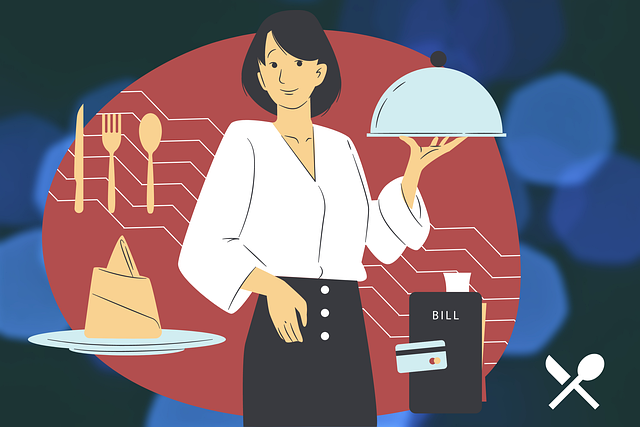We've previously covered the main tax issues for pop-up restaurants and in relation to this we're now going to focus on how tips and gratuities are taxed.

What do we mean by tips and gratuities?
A tip or gratuity is essentially a freely given payment by a customer which acknowledges good food or service. It is made by either cash or alternatively added to the bill.
This is different from a service charge which is usually automatically added as part of a restaurant policy. It could be either optional or mandatory for the customer to pay this.
The tax treatment of tips and gratuities
It is important to understand how tips and gratuities are taxed as this will different to the tax treatment of service charge
Tips are always subject to income tax though it will depend on the circumstances which we cover below. The National Insurance treatment is more complex. Broadly speaking tips are exempt from National Insurance if they are neither paid nor allocated, directly or indirectly to your employees by you.
How tips and gratuities are dealt with in practice
Theoretically, you as the employer could keep a separate record of tips for each of your staff and pay them individually - though this is unusual in practice. If you did apply this method you must operate PAYE to account for the tax. However as you are not deciding how they are allocated, the tips will be exempt from National Insurance Contributions.
However for practical reasons, usually all tips are pooled before being divided between staff. This is known a tronc and the precise tax and National Insurance treatment will depend on whether or not you allocate these out to your employees. The other point to mention is that tips do not form part of the National Minimum Wage.
Troncs
A tronc is simply a name given to an arrangement where all tips are pooled and then divided out, as opposed to staff just keeping what they are given by customer. Usually the responsibility for collecting and distributing tips will be delegated to a responsible employee for example a head waiter (or waitress).
Where a tronc is in operation, a separate PAYE scheme must operate. The tronc master is personally responsible for correctly operating this scheme and is also liable for any consequences of not doing so.
The tronc master can use the employer’s payroll to operate the tronc PAYE, with the employer acting as an agent, however, the tronc PAYE records must be kept separately. The precise treatment will depend on whether you as their employer allocates tips out to your employees.
Other methods of paying tips and gratuities
Tip boxes
Any payment into a tip box is treated as a tronc and the treatment is identical to that for tips detailed above.
Cash given directly to your staff
Where cash is given directly to your staff and kept, they are responsible for reporting the amount to HMRC and making good on tax on their tips. Your employee should either report the tips on their tax return, or as the usual practice contact HMRC to arrange for an appropriate restriction in their PAYE code.
Where tips are paid electronically and you have no involvement in passing them on or allocating them to your employees no National Insurance is payable.
What about service charges?
Where they are mandatory these are not considered to be tips because the customer has no choice whether or not to pay them. If you decide to pass them on your employees, they'll be regarded as wages and are subject to PAYE via your payroll.
If service charges are voluntary, these form part of your customer’s bill, so are always paid to you as the employer.
If you allocates these pay them to individual employees, then any payment forms part of your employees wages. You must therefore operate PAYE on those payments through your payroll. However, if you pass them to a single employee to allocate, then National Insurance is not due. Additionally, the responsibility for operating PAYE is also passed on to the employee.
VAT treatment
Tips are outside the scope of VAT (and thus not VATable) where they are genuinely given freely. This is the case, even if they are collected by you and regardless of whether you subsequently pass these on to your employees.
Mandatory service charges on the other hand are subject to VAT as they form part of your sales, as your customer has no choice as to whether to pay them.
For more useful information, check out our Ebooks here.
And if you'd like to know how we can help you with all of this, or with anything else, feel free to give us a call on 01202 048696 or email us at [email protected].
Alternatively, please feel free to complete our Business Questionnaire here.
